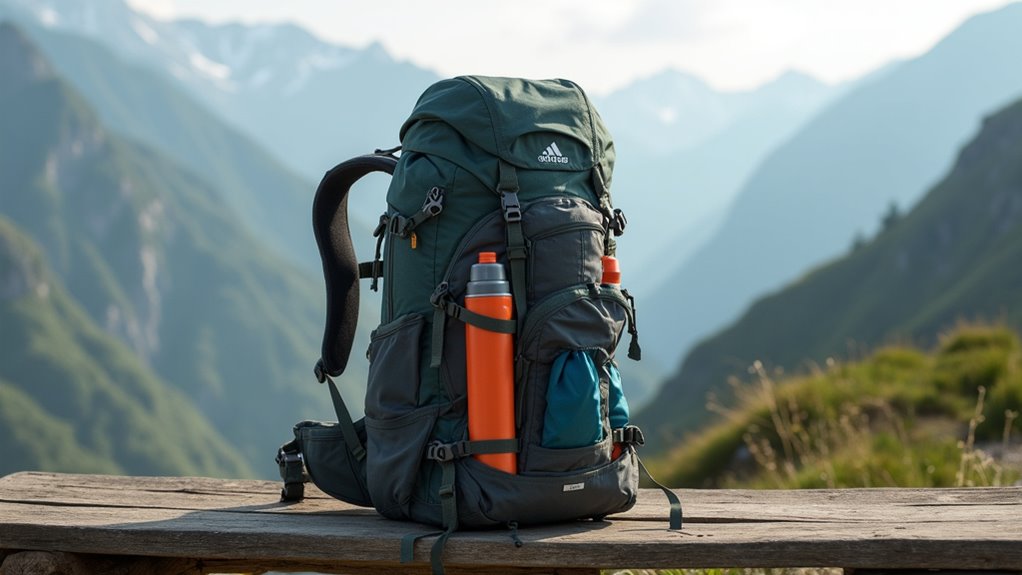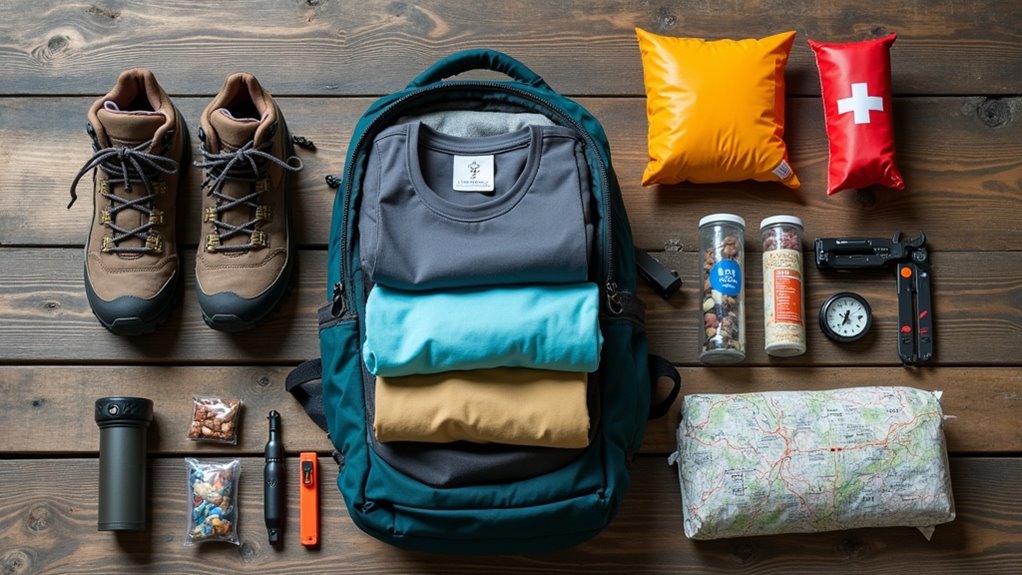For comfortable travel, your backpack should weigh between 10% and 20% of your body weight—so if you weigh 70 kilograms, keep your fully packed bag between 7 and 14 kilograms. This guideline helps prevent strain and allows for smooth mobility, whether you’re maneuvering through airports or hiking trails. Choose lightweight, ergonomic backpacks with adjustable straps and hip belts for even weight distribution and improved comfort, especially when traveling for extended periods. Explore further to discover tips on maximizing comfort and packing efficiency.
When planning for comfortable travel, understanding how much your backpack should weigh is essential for both convenience and health. Ideally, your backpack shouldn’t exceed 10% to 20% of your body weight. For instance, if you weigh 70 kg (about 154 lbs), your pack should remain between 7 and 14 kg (15 to 31 lbs), depending on your fitness level and the trip’s demands.
Lighter backpacks, such as the Cabin Zero, start at just 700 grams (1.54 lbs), making them suitable for city travel or minimalist trips where gear requirements are minimal. For moderate excursions, the Osprey Farpoint 40, weighing 1.6 kg (3.5 lbs), offers a balance between capacity and ease of carrying.
If you plan to hike or backpack for extended periods, you’ll likely carry more equipment, such as sleeping bags or cooking gear, which increases total weight. [Backpacking packs are available in various types, including weekend, multiday, and extended-trip options, each offering different capacities to suit your travel duration and gear needs.] Backpacking packs typically range from 45 to 80 liters, which accommodates more gear but also requires consideration of how much you pack.
Advanced materials in backpacks, like those used in high-end options such as the Tom Binh Techonaut, help reduce weight without sacrificing durability. The 10% rule is commonly referenced among hiking and travel communities as a guideline for maximum backpack weight. Features like side compartments and bottom access points contribute to organizational efficiency, allowing you to distribute weight more evenly and avoid overpacking.
When traveling by air, airlines have strict carry-on weight restrictions, making a lightweight, compact pack an advantage. Sticking to essentials and using options like the Osprey Farpoint series helps you meet airline limits and avoid checked luggage fees.
Adjustable straps, hip belts, and load lifters are critical for distributing weight properly, reducing strain on your shoulders and back. Proper fit is as important as overall weight. Well-padded straps and ergonomic designs minimize pressure points, and a snug hip belt transfers weight to your hips, relieving your shoulders.
Breathable, durable materials enhance comfort and longevity. By carefully selecting your backpack and packing only what you need, you’ll guarantee both comfort and compliance with travel guidelines during your journeys.









